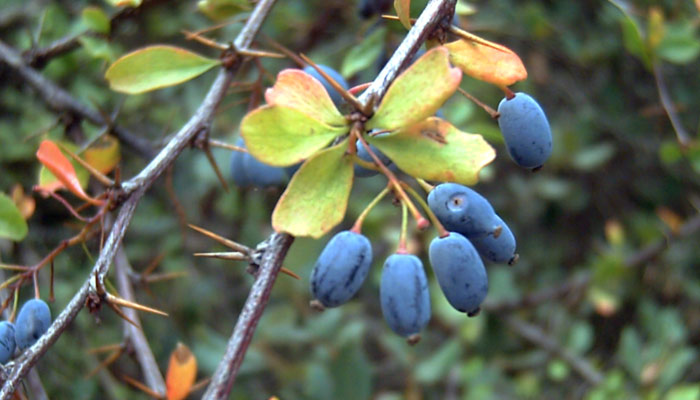 Introduction:
Introduction:
One of the most exciting natural products in current medical research is berberine, an alkaloid found in goldenseal root, barberry bark, Oregon grape root, and coptis (goldthread) root. What is so exciting about the research is:
- The results from clinical trials in diabetes, high blood pressure, and elevated blood lipid levels.
- There is very encouraging experimental data in a wide range of modern health issues including cancer, Alzheimer’s disease, Parkinson’s disease, and others.
Alkaloids like berberine are synthesized in plants to serve vital roles in the plant’s cellular metabolism. Obviously, humans can also gain benefits from these compounds. Since early human times plant alkaloids have been among the most important medicinal agents used by humans. They are now enjoying a Renaissance as these ancient medicines are matching the needs of current times.
Background Data:
Berberine-containing plants have been revered for a number of clinical applications through the years. Perhaps most important have been there use in fighting infections, but they have also been used in diabetes. Since the early 1900s, purified berberine has also emerged as a popular natural medicine, especially in China.
What scientific research has focused on in the last decade is building an impressive amount of clinical research in the use of berberine in lowering blood lipids and blood pressure, and improving blood sugar control in type 2 diabetes. Berberine exhibits a number of beneficial mechanisms to produce these effects including an ability to activate the important enzyme called AMP-activated protein kinase or AMPk for short. AMPk is found inside every cell and serves as a “master regulating switch” in energy metabolism. Overall, the activity of this enzyme plays a major role in determining body fat composition and especially the amount of visceral “belly” fat. Here are some of the consequences of low AMPk activity:
- Accelerated aging
- Chronic inflammation
- High blood cholesterol and triglycerides
- Increased visceral “belly” fat
- Insulin resistance
- Mitochondrial insufficiency and dysfunction
- Neurodegeneration
- Obesity
- Poor blood sugar control
Obviously, as an effective activator of AMPk, berberine offers great promise in dealing with all of the consequences of low AMPk activity, as well as other health conditions.
New Data:
A meta-analysis of 27 published clinical trials using berberine as a therapeutic agent in type 2 diabetes, elevated blood lipids and high blood pressure was conducted to answer questions on its safety and efficacy.
Results showed quite convincingly that in the treatment of type 2 diabetes mellitus, berberine along with lifestyle intervention lowered the level of fasting blood sugar levels, after-meal blood sugar levels and glycosylated hemoglobin (HbA1c) more than lifestyle intervention alone or placebo. When berberine was compared to oral hypoglycemic drugs used in type 2 diabetes, there was no statistical significance between treatment of berberine and these drugs. In other words, the clinical results seen with berberine were on par with the drugs.
The same sort of comparative results seen in type 2 diabetes were found in the treatment of elevated blood lipids (cholesterol and triglycerides) and high blood pressure. Studies also supported that berberine combined with conventional drugs in these conditions is safe and can produce better results than the drugs used alone. Typical dosage for berberine was 500 mg two to three times daily.
Side effects with berberine occurred at much lower rates and were milder than prescription drugs. Side effects were seen mainly at higher dosages (e.g., 500 mg three times a day) and included such as nausea, diarrhea, constipation, abdominal distension, and abdominal pain.
The researchers conducting the meta-analysis concluded that berberine has comparable therapeutic effect on type 2 diabetes, elevated blood lipids and hypertension with no serious side effect or toxicity. Furthermore, the review indicated that berberine combined with conventional drugs in these conditions is safe and can produce better results than the drugs alone.
Commentary:
Berberine is an emerging natural product superstar. Its bright light may end up shining even brighter than curcumin if there is a continued commitment on research. Certainly in all areas where berberine has been currently evaluated, it could be concluded that it has some advantages over curcumin in regards to potential in cancer and other health conditions.
Reference:
Lan J, Zhao Y, Dong F, et al. Meta-analysis of the effect and safety of berberine in the treatment of type 2 diabetes mellitus, hyperlipemia and hypertension. J Ethnopharmacol. 2015 Feb 23;161:69-81.
Dr. Michael Murray
10/13/15



